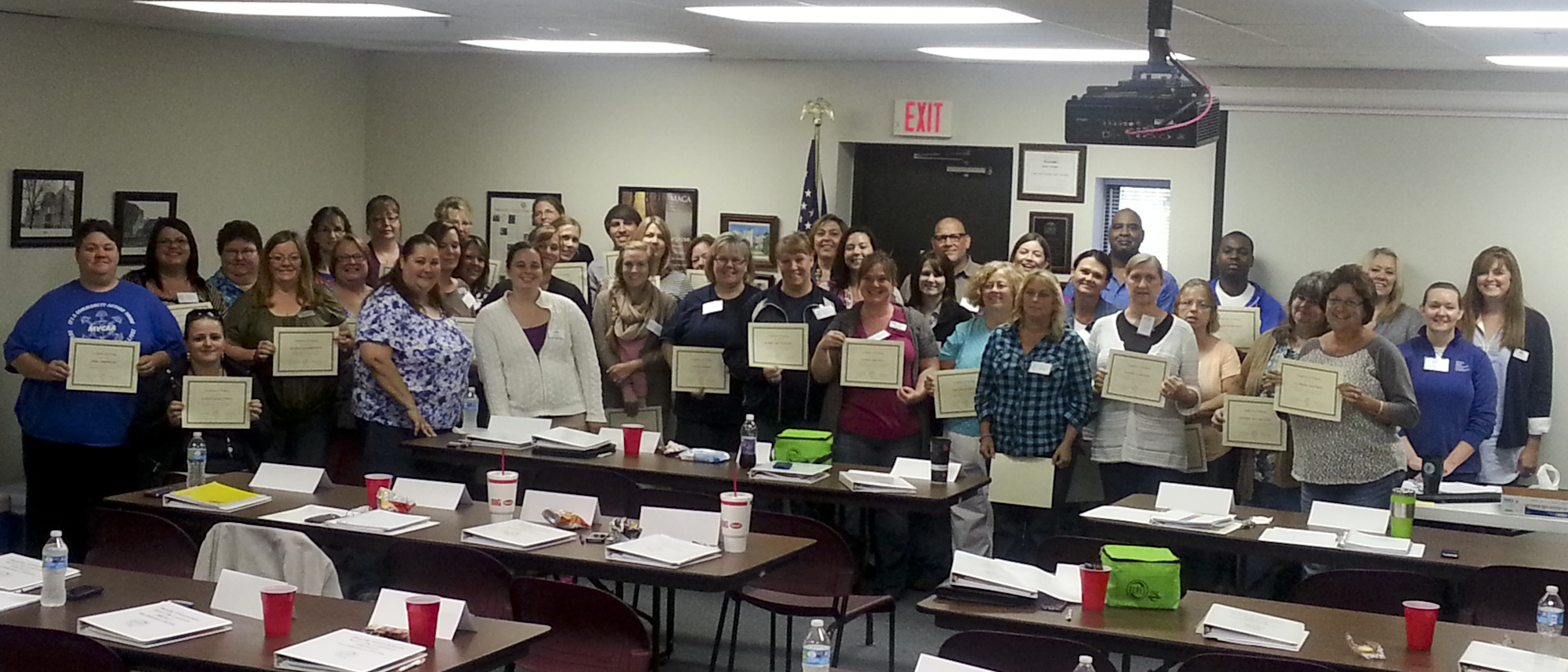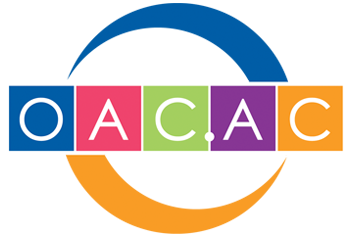21 Aug OACAC hosted REALL Simulation Facilitator’s Training September 11-12, 2014

The OACAC Neighborhood Centers staff hosted a Reality Enrichment And Life Lessons (REALL) Simulation facilitator training September 11-12, 2014 at 215 S. Barnes Avenue, Springfield for Missouri-based Community Action Agencies interested in challenging youth to consider how the choices they make now may result in challenges in adulthood. Approximately 40 participants from 10 agencies attended. As part of their training, participants experienced a REALL Simulation at Great Circle on Friday, September 12. Participating agencies were provided a jump drive with the REALL Simulation Kit to utilize in their communities.
Training was facilitated by Meghan Visser, Jennifer Olson, Darla Boice and Melannie Frater, all whom are staff in the OACAC Neighborhood Center Program. The Community Action Agencies that attended the training were: Community Action Agency of St. Louis County (CAASTLC), Community Action Partnership of St. Joseph (CAPSTJOE), Central Missouri Community Action (CMCA), East Missouri Action Agency (EMAA), Jefferson-Franklin Community Action Corporation (JFCAC), Missouri Valley Community Action Agencies (MVCAA), North East Community Action Corporation (NECAC), Ozark Action, Inc. (OAI), and People’s Community Action Corporation (PCAC). A participant from the Missouri Association for Community Action (MACA) was also in attendance.
The Reality Enrichment and Life Lessons (R.E.A.L.L.) project is a simulation designed to challenge youth to think critically about how choices and decisions made in adolescence may have consequences in adulthood. The R.E.A.L.L. Simulation addresses many of the competencies identified by the Missouri State Board of Education:
• Identify components and sources of income
• Analyze how career choice, education, skills, and economic conditions affect income and goal attainment
• Relate taxes, government transfer payments, and employee benefits to disposable income
• Explain how financial resources affect the choices people make
A R.E.A.L.L. Simulation is divided into three activity sessions that strive to educate youth on the consequences of their choices. The simulation lasts approximately three hours.
First, the Orientation will explain the simulation rules and expectations. In the second session youth assume an identity and live by the choices that person made. Then, during the Reactive Session, participants may be high school drop-outs, felons (usually drug or alcohol related), single parents or unemployed job seekers. Very few have bank accounts and are forced into utilizing check-cashing facilities and pay-day loans, and those few that even have a job find it a daunting task to pay their bills and keep their families fed. Those who are unemployed are faced with a scenario of going out and looking for work while trying to make ends meet, and those who are felons are turned down for jobs due to “corporate policy not to hire ex-offenders.” This simulated activity leaves them frustrated with trying to figure out how to financially provide for their families and they realize how hard it is to depend on social services to supplemental the need to feed, clothe and house themselves and their loved ones.
During the Proactive Session youth take on the persona of someone who has graduated high school, have additional training or have higher education degrees. Most have bank accounts, well-paying jobs and the ability to easily pay their monthly expenses and achieve self-sufficiency, while still being able to afford entertainment activities, such as going to the movies and out to dinner. Some do so well that they can even afford to purchase a new family car! Obviously, round two leaves participants much less frustrated with the day-to-day financial aspects of life. This session shows them that making good life choices can lead to living a proactive and less stressful life.
Finally, during the Debriefing Session, youth reflect on their experiences as a person who made poor decisions and one who made good choices. They discuss how the decisions they make right now in their lives can affect their futures for years to come. One participant shared, “Dropping out affects you very much. You will earn less pay…” OACAC is dedicated to helping today’s youth understand the consequences poor decisions can have on one’s life and is committed to helping them make proactive choices to ensure that they have happy, self-sufficient futures.
OACAC Neighborhood Centers will offer training to schools and community organizations at a later date. Training is required to access the copyrighted materials to host a simulation. OACAC has 35 REALL Simulations scheduled on the ten-county area for the 2014-2015 school year.
For more information on a REALL Simulation, email [email protected].



